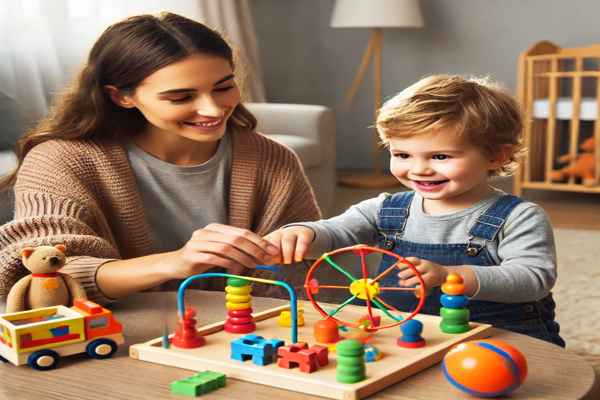
Communication can be one of the most challenging areas for children with autism. It affects their ability to interact with others, express their needs, and understand social cues. As every child is unique, therapy methods tailored to their needs are essential in helping them progress.
One effective approach to gaining attention is play-based child autism therapy, which uses structured play to enhance communication and social skills in children. This therapy focuses on engaging children in enjoyable activities that mimic real-life interactions, making learning fun and less stressful. This article will discuss how this form of therapy can transform communication skills in children with autism, fostering both verbal and non-verbal forms of interaction.
The Role of Play in Child Development
Play is an essential part of early childhood development, helping children learn about the world around them. For children with autism, structured play becomes a tool for improving social and communication skills. Play provides a safe space for children to interact, learn, and practise new skills without the pressure of formal instruction.
When incorporated into therapy, play activities help children improve their ability to express themselves, understand others, and engage in meaningful social interactions. These sessions often involve games, toys, and role-playing activities that encourage communication in a non-threatening way.
Enhancing Verbal Communication Skills
For children with autism, verbal communication can be one of the most difficult skills to master. Many children with autism struggle with language, either by having delayed speech or difficulties with conversation flow. Play-based child autism therapy can make a significant impact by encouraging verbal expression in a relaxed environment.
Therapists guide children through activities that encourage the use of words, sounds, or simple sentences. For example, during a play session, a therapist might encourage a child to ask for a toy or respond to a question, prompting them to use words or phrases they might not normally attempt. This can gradually build confidence in speaking.
Benefits of Play for Verbal Communication:
- Encourages spontaneous speech in a comfortable setting
- Provides opportunities to learn new vocabulary through repetition
- Builds social communication skills, such as turn-taking and asking questions
- Reduces anxiety associated with speaking in more formal settings
Improving Non-Verbal Communication
In addition to verbal communication, non-verbal cues such as gestures, facial expressions, and body language are vital components of social interaction. Children with autism often face challenges with non-verbal communication, which can hinder their ability to understand or convey emotions and intentions.
Play-based therapy focuses on these aspects by using activities that promote the use of body language and facial expressions. For instance, a child might be encouraged to imitate the facial expressions of the therapist or act out certain emotions through play. These activities help children learn to recognise and express feelings.
Social Interaction and Turn-Taking Skills
One of the main objectives of play-based therapy is to enhance social interaction and teach children the importance of turn-taking, sharing, and cooperating with others. These are skills that are often difficult for children with autism to learn in natural settings, as they may struggle with reading social cues or understanding the dynamics of group play.
Through structured play, therapists guide children in practising social exchanges, encouraging them to take turns, share toys, and interact in a way that reflects appropriate social behaviour. This method helps children gain the confidence to engage with peers and adults, building relationships and strengthening their social connections.
Play-based child autism therapy can be a powerful tool in transforming communication skills for children with autism. By using play to address both verbal and non-verbal communication challenges, this form of therapy offers a natural and enjoyable way for children to learn and grow. Through individualised sessions, children can improve their ability to express themselves, understand others, and interact socially, ultimately increasing their quality of life and confidence.
Also Read: Vault Opener NYT Crossword: The Secret Clue That Unlocks Your Puzzle Success


